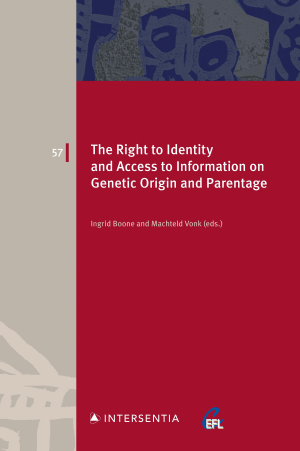
Do donor-conceived children have a right to know the identity of their sperm or egg donor or should donors have a choice to remain anonymous? What does relinquishing donor anonymity mean for establishing parentage? Should laws regulating access to donor information have a retroactive effect? What are the experiences of children conceived with donor sperm? How can we prepare prospective parents for raising a donor-conceived child? Finally, how can we facilitate contact between children and their donors? These are some of the questions that are discussed in this book, which is the result of a multidisciplinary seminar on the right to identity and access to information about genetic origins and parentage, organised by RETHINKIN_, a Scientific Research Network (WOG) 2015–2024 of the Research Foundation Flanders.
The Right to Identity and Access to Information on Genetic Origin and Parentage explores the right to identity from an international human rights perspective and compares the national regulations of states that have waived donor anonymity. It describes different legal paths to discover or establish one’s genetic origins. In addition to legal analyses, the book includes findings from psychological research on the experiences of (intending) parents, donor-conceived people and donors. Moreover, this book not only delves into the theoretical framework, but, additionally, assesses the practices of counselling, registration and providing information, and DNA databases. In particular, the last two chapters focus on experiences in the Netherlands, which may be valuable for other jurisdictions developing regulations surrounding the knowledge of origins.